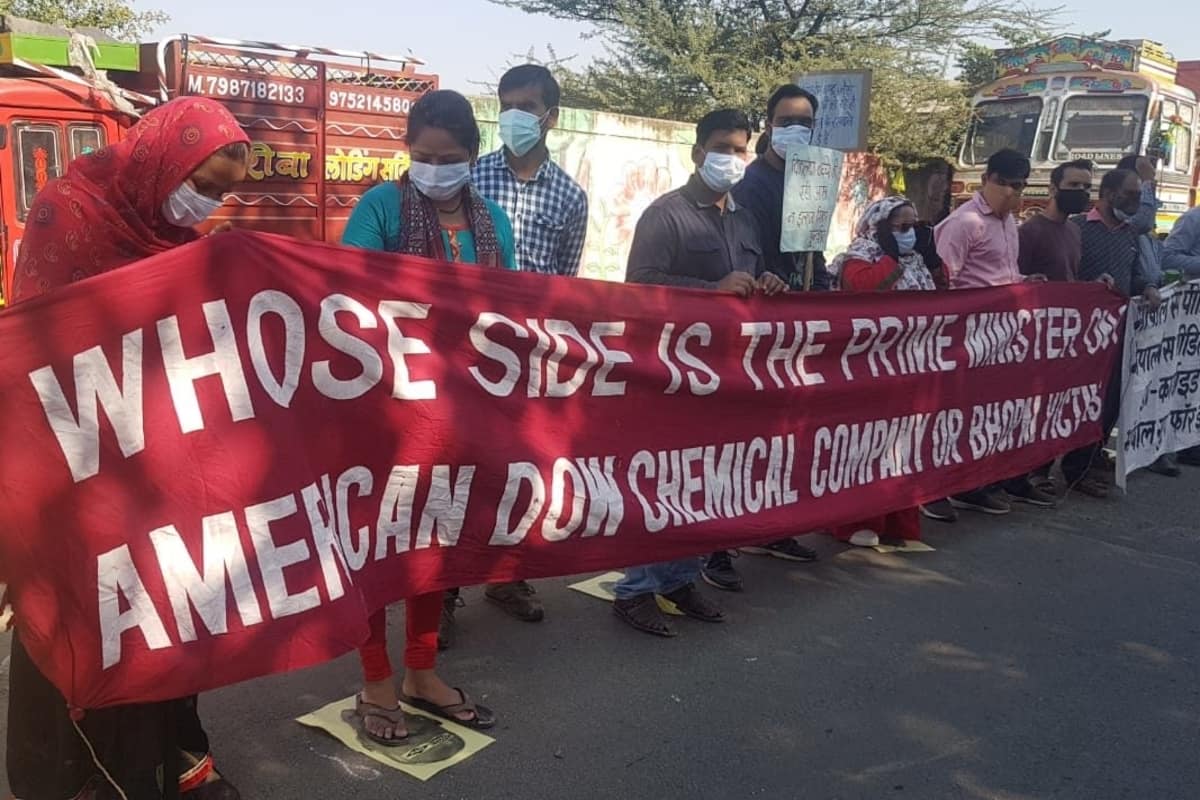
Survivor groups in Bhopal have voiced their opposition to the government’s plan to build a memorial to the victims of the gas tragedy in the grounds of the abandoned factory site, arguing a full assessment of the site and disposal of all toxic waste must take place before any permanent structures are placed on the land.
On Sunday, June 27th, Bhopal Gas Tragedy Relief and Rehabilitation Minister Vishwas Sarang announced the Madhya Pradesh state government has decided to go ahead with construction of an ‘employment-oriented’ memorial on the abandoned Union Carbide factory premises. As a first step, a contract has been issued to dispose of hazardous waste (about 337 metric tonnes kept packed in a shed) on the factory premises, the minister said.
But survivor groups in the city have pointed out that the hazardous waste in the shed represents only a small portion of contaminants still remaining at the site. Rachna Dhingra, of the Bhopal Group of Information and Action, said that the according to the National Environment Engineering Research Institute (NEERI), toxic waste has been dumped in as many as 21 spots on the abandoned factory premises. Crucially, one of the main dumping spots for toxic waste as early as 1977, seven years before the gas leak occurred, was a solar evaporation pond from which toxic chemicals began seeping into the groundwater as early as 1982 due to a breach in the plastic lining. This pond remains one of the key sources of groundwater contamination, which is still poisoning the water of 48 neighbourhoods around the site and as many as 100,000 people today.
“The 337 MT waste in question is just about five per cent of the entire waste. The solar evaporation pond itself contains as much as 1.7 lakh (170,000) tonnes of toxic sludge and the waste cannot simply be disposed off without scientific assessment. The government should rather float international tenders for comprehensive assessment of depth and spread of the chemicals from toxic waste before anything else. It should also make Dow Chemical (current owners of Union Carbide) pay for the disposal of the waste by pressing the pending petition in MP High Court in this regard,” Dhingra told news publication TheWeek.
The upcoming curative petition in the Madhya Pradesh High Court aims to overturn the original compensation settlement between Union Carbide and the Government of India and, if successful, would require current owners of Union Carbide, Dow Chemical, to provide further compensation for victims and pay to have the factory site assessed and finally cleaned-up.
The Bhopal Group for Information and Action, along with Children Against Dow Carbide and other survivor groups, say they have no problem with the government’s proposed plans for disposing of the hazardous waste in the shed, but that unless a proper assessment is carried out and the remainder of the site also cleaned, construction of the memorial will hinder any future attempts to clean the site and finally put an end to the ongoing poisoning of the drinking water of thousands of Bhopalis.


